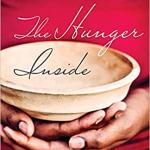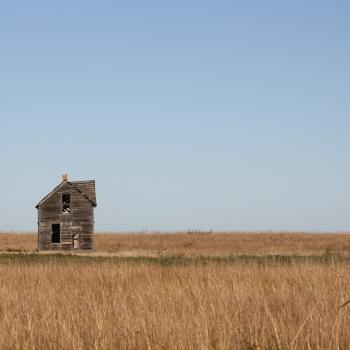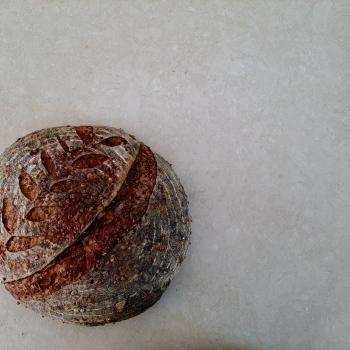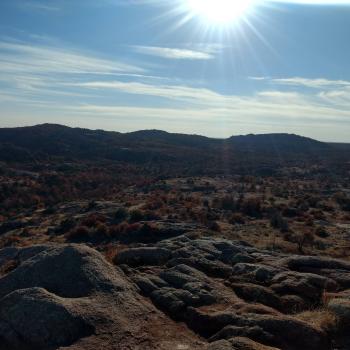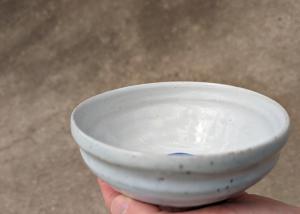
Once, when I mentioned to a nutritionist that I practiced fasting, she got uncomfortably quiet. She was concerned that I get enough calories, which—thanks to my love of bread, cheese, chocolate, tacos and pretty much everything—I assured her I have no trouble doing.*
But why wouldn’t she be uncomfortable? Fasting is one of those antique practices, something regarded as just slightly off kilter that well-adjusted modern people have abandoned along with hair shirts and self-flagellation. (Right?)
Except that fasting is deeply biblical. The Old Testament taught fasting for the Day of Atonement (Leviticus 23:32), and the great heroes of faith—like Esther, Ezra, Daniel, and David—fasted. The apostle Paul fasted (Acts 13:2). The early church fasted (twice a week—on Wednesdays and Fridays, see the Didache ch.8). And most importantly of all: Jesus fasted and taught us to do the same (Luke 4:2; Matthew 6:16-18).
It’s “when you fast,” not “if” (Matthew 6:17).
I’ve practiced fasting for the last 20 years or so. For most of that time, I’ve done a 24-hour fast from Thursday to Friday evening. This Lent, I borrowed a page from the Didache, moved the 24-hour fast to Wednesday and extended my Friday fast into Saturday morning (for a total of 36 hours). I’ve gone longer a handful of times, but I’m no fasting all-star. Along the way, I’ve discovered that fasting helps me pray more deeply and fervently. I’ve gained clarity, watched anxieties melt away, and found myself more open to Christ’s leading and presence. I’ve started to learn what St. Benedict was getting at when he instructed his monks to “love fasting” (Rule, 4:13).
Above all, what I’ve learned is that although fasting is a spiritual discipline, it’s first a grace.
Fasting is a grace. I’ll admit it: sometimes I dream about food when I fast. I’m weak, and my body betrays my weakness as I sleep, projecting images of pot roast and English muffins dripping with butter. The longer I’ve practiced fasting, the more I’ve come to realize how spiritually small I am. What are a few hours without food? There’s nothing I can do to impress God, and God owes me nothing because I’ve skipped a meal. Everything is grace, beginning to end, and the best I can do is recognize my weakness and open myself up to God’s gracious action.
Feasting is a grace. Now during Eastertide, I’m foregoing fasting as we celebrate the resurrection. I’ve realized just how much I also don’t know about feasting. It’s hard to eat with joy unstained by gluttony, with fullness that’s not conflicted by calorie counts and nutrient profiles and glycemic indices. It’s hard to eat like it’s all gift—like Jesus would eat.
This disconnect that we have with our own bodies is part of the Fall. Here we are outside the Garden, ashamed of our naked pot belly. Our appetites and hungers are disordered because something has been severed between our souls and our stomachs. Christ uses fasting and feasting to bring us back together.
If you’ve never fasted, I recommend starting with a weekly 24-hour fast. Eat supper as usual, and then don’t eat again until the following evening. Once you’ve grown in your fasting ability, you might try pushing the fast through to breakfast the next day. In addition to the spiritual benefits–and depending on your diet and activity–a 36-hour fast may kick you to ketosis and burn some fat. That’s been my experience.
When Jesus taught on fasting, he paired it with giving and prayer (see Matthew 6). Give away some money for Kingdom purposes and use the extra time you have not preparing or eating food to be with Bridegroom in prayer (see Matthew 9:14-17). Ultimately, that’s what fasting and feasting are all about: wholeheartedly desiring nothing more than Jesus—not even food.
***
Here are two books I’ve found helpful:
Dr. Jason Fung, The Complete Guide to Fasting
Jay W. Richards, Eat, Fast, Feast: Heal Your Body While Feeding Your Soul―A Christian Guide to Fasting
*Of course, without assistance from a physician and a pastor, fasting would not be right for folks struggling with eating disorders. Diabetics also need special help.

